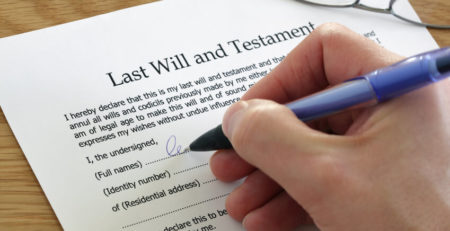What Is A Personal Injury Trust?
We can help you choose the right type of trust for you and your circumstances. We recommend that whatever the size of award you receive, consideration should be given to setting up a trust. Here’s just a few of the other areas our Wills, Trusts & Probate services cover:
The Benefits Of A Personal Injury Trust
Personal Injury Trusts can be useful tools to shelter your award of damages against a variety of threats, including attack from unscrupulous individuals who may look to prey on vulnerable individuals for their own gain.
A Personal Injury Trust can also be used to safeguard current and future entitlement to means tested benefits. Even if you are not entitled to means tested benefits now, should your circumstances change you may become entitled to means tested benefits in the future, e.g. assistance with the cost of care.
If you have not set up your trust when your damages are received you may lose your chance to safeguard your money.
If you are already in receipt of means tested benefits then a Personal Injury Trust should be set up before you receive any part of your award of compensation.
A Personal Injury Trust offers a variety of benefits to the recipient of the compensation award both now and for the future. We will advise you whether a Personal Injury Trust is suitable for you and if so, what type. We aim to make the whole process tailored to your needs and as straightforward as possible.
How Does A Personal Injury Trust Work?

A Personal Injury Trust can be used for all types of compensation claims, for example, compensation received from an accident or industrial disease or from a medical negligence claim.
When the trust is set up you appoint at least two trustees to administer the trust on your behalf and the trust assets are held in their names.
You can appoint trustees with expertise in handling compensation awards to assist and take some of the burden off your shoulders and give you confidence that your compensation award is being used appropriately.
A Personal Injury Trust offers a variety of benefits to the recipient of the compensation award both now and for the future.
We can advise as to whether a personal injury trust is suitable for you, tailoring the whole process to your needs and keeping everything as straightforward as possible.
When you want to remove money from the trust, for example, your trustees will have to provide their consent.
This rarely causes any difficulties as you will have decided who the trustees should be when you originally set up the trust.
You can also be given the power to remove trustees and appoint new trustees while the trust is ongoing.
What Our Customers Say
Here’s a few examples of the kind words some of our clients had to say about working with us.
“We were struck by the team’s ability to explain the complexities of a will, and their level of customer service which we thought was excellent. Thank you so much.”
Meet Our Dedicated Wills, Trusts & Probate Team
Get In Touch To Discuss A Personal Injury Trust
If you are looking to start a Personal Injury Trust, need some help managing a pre-existing trust, or simply need further information on how these trusts work – we can help you.
Get in touch with us today using one of the branch numbers provided, and we would be happy to assist you with all your Personal Injury Trust needs.
Contact us today or visit a
local branch
Hanley: 01782 262031
Newcastle: 01782 612311
Sandbach: 01270 761111
Leek: 01538 399332
Latest News
Visit the Tinsdills blog for great content about the legal sector and beyond.
The Most Popular Questions For Personal Injury Trusts
A Personal Injury Trust is a mechanism which allows any award of compensation for a personal injury to be protected from effecting any means tested benefits or local authority assessments for care.
Any damages placed into a trust should be placed in a specially created trust bank or building society account and should be kept separate to your day-to-day finances.
A Personal Injury Trust is recognised as a legitimate solution for protecting your personal injury award and is not a form of ‘loophole’.
A Personal Injury Trust usually takes the form of either a bare trust or a discretionary trust. The preferred choice of trust will be heavily dependent on the individual client’s personal circumstances.
Provided that certain formalities are followed when creating the trust then a personal injury trust can protect your means tested benefits from being affected.
Even if a beneficiary of personal injury compensation is not in receipt of means-tested benefits at that time, it may be the case where they are at some point in the future. A personal injury trust can also protect the compensation payment from being taken into consideration for local authority care assessments or from a vulnerable person being taken advantage of.












